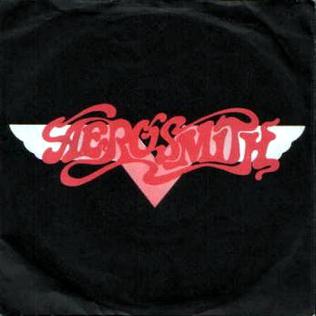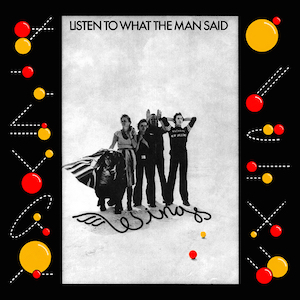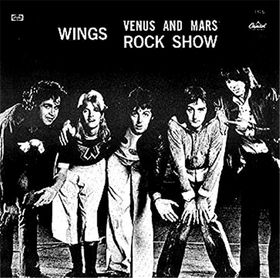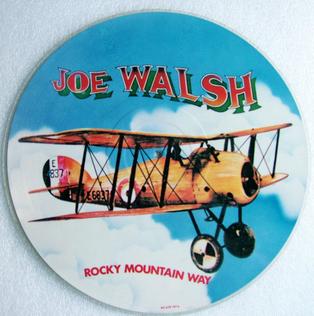Related Research Articles

The Eagles are an American rock band formed in Los Angeles in 1971. With five number-one singles, six number-one albums, six Grammy Awards and five American Music Awards, the Eagles were one of the most successful musical acts of the 1970s in North America and are one of the world's best-selling music artists, having sold more than 200 million records worldwide, including 100 million sold in the US alone. They were inducted into the Rock and Roll Hall of Fame in 1998 and were ranked number 75 on Rolling Stone's 2004 list of the "100 Greatest Artists of All Time". Founding members Glenn Frey, Don Henley, Bernie Leadon, and Randy Meisner had all been recruited by Linda Ronstadt as band members, some touring with her, and all playing on her self-titled third solo studio album (1972), before venturing out on their own as the Eagles on David Geffen's new Asylum Records label.

Ike & Tina Turner was an American musical duo consisting of husband and wife Ike Turner and Tina Turner. From 1960 to 1976, they performed live as the Ike & Tina Turner Revue, supported by Ike Turner's band, the Kings of Rhythm, and backing vocalists, the Ikettes. The Ike & Tina Turner Revue was regarded as "one of the most potent live acts on the R&B circuit."

Joseph Fidler Walsh is an American guitarist, singer, and songwriter. Best known as a member of the rock band Eagles, his five-decade career includes solo work and stints in other bands: James Gang, Ringo Starr & His All-Starr Band, and New Zealand's Herbs. He was part of the supergroup The Best and had success as a solo artist and prolific session musician, appearing on other artists' recordings. In 2011, Rolling Stone ranked him No. 54 on its list of "100 Greatest Guitarists of All Time".

Aerosmith is the debut studio album by the American rock band Aerosmith, released on January 5, 1973, by Columbia Records. "Dream On", originally released as a single in 1973, became an American top ten hit when re-released on 27 December 1975. The album peaked at number 21 on the US Billboard 200 album chart in 1976.

So What is the third studio album by the American singer-songwriter and multi-instrumentalist Joe Walsh. It was released in late 1974 on ABC-Dunhill Records.

"Dream On" is a power ballad by American rock band Aerosmith, from their 1973 eponymous debut album. Written by lead singer Steven Tyler, this song was their first major hit and became a classic rock radio staple. Released in June 1973, it peaked at number 59 on the Billboard Hot 100 but hit big in the band's native Boston, where it was the number one single of the year on WBZ-FM, number five for the year on WRKO and number 16 on WMEX (AM). The song also received immediate heavy airplay on the former WVBF (FM), often showing up in the #1 position on "The Top Five at Five" in June 1973.

"I Can't Tell You Why" is a song by the American rock band Eagles that appeared on their 1979 album The Long Run. It was written by band members Timothy B. Schmit, Glenn Frey and Don Henley. Recorded in March 1978, it was the first song finished for the album and the first Eagles song to feature Schmit on lead vocals. Released as a single in February 1980, it became a Billboard top 10 hit in April, reaching number eight on the Billboard Hot 100 and number three on the Adult Contemporary chart. It was the group's last top ten hit on the Billboard Hot 100.

"Listen to What the Man Said" is a hit single from Wings' 1975 album Venus and Mars. The song featured new member Joe English on drums, with guest musicians Dave Mason on guitar and Tom Scott on soprano saxophone. It was a number 1 single on the Billboard Hot 100 in the US the week of July 19, 1975 and reached number 1 in Canada on the RPM National Top Singles Chart. It also reached number 6 in the UK, and reached the top ten in Norway and New Zealand and the top twenty in the Netherlands. The single was certified Gold by the Recording Industry Association of America for sales of over one million copies.

"Venus and Mars"/"Rock Show" is a medley of two songs written by Paul and Linda McCartney and originally performed by Wings that make up the first two songs of the album Venus and Mars. The single was released in the United States on 27 October 1975 and in the United Kingdom on 28 November 1975. The B-side is "Magneto and Titanium Man", another track from the album. The single version is considerably shorter than the album version of the songs; in the single "Rock Show" is cut by more than 3 minutes and "Venus and Mars" is cut by a few seconds. "Venus and Mars/Rock Show" peaked at number 12 on the Billboard Hot 100 in the US, but did not chart on the UK singles chart, the first McCartney penned single to do so. In the book The Rough Guide to the Beatles, Chris Ingham praised both songs, describing "Venus and Mars" as "atmospheric" and "Rock Show" as "barnstorming".
"Angie" is a song by the English rock band The Rolling Stones, featured on their 1973 album Goats Head Soup. It also served as the lead single on the album, released on 20 August 1973.

"Shout It Out Loud" is a song by the American hard rock group Kiss, originally released on their 1976 album, Destroyer. It was released as the lead single off the album, and it proved to be successful, becoming the band's second single to break the Top 40, after "Rock and Roll All Nite". It was also the band's first single to top the charts, as it reached number 1 hit in Canada on May 22, 1976.

"Heartache Tonight" is a song written by Don Henley, Glenn Frey, Bob Seger and JD Souther, recorded by the Eagles and features Glenn Frey on lead vocals. The track was included on their album The Long Run and released as a single in 1979. It reached No. 1 on the U.S. Billboard Hot 100 in November of that year and was certified Platinum by the Recording Industry Association of America representing one million copies sold. It was the Eagles' final chart-topping song on the Hot 100.

"Bennie and the Jets" is a song written by English musician Elton John and songwriter Bernie Taupin, and performed by John. The song first appeared on the Goodbye Yellow Brick Road album in 1973. "Bennie and the Jets" has been one of John's most popular songs and was performed during his appearance at Live Aid.

"Take It to the Limit" is a song by Eagles from their fourth album One of These Nights from which it was issued as the last third single on November 15, 1975. It reached No. 4 on the U.S. Billboard Hot 100 and was also Eagles' greatest success to that point in the United Kingdom, going to No. 12 on the charts. Billboard ranked it as the No. 25 song for 1976.

"Life in the Fast Lane" is a song written by Joe Walsh, Glenn Frey and Don Henley, and recorded by American rock band Eagles for the band's fifth studio album Hotel California (1976). It was the third single released from this album, and peaked at No. 11 on the Billboard Hot 100.

Joseph Anthony Vitale is an American singer, songwriter, and multi-instrumentalist. In a career spanning more than 55 years, Vitale has played with many of the top names in music during a career dating back to the 1970s.

"Rocky Mountain Way" is a 1973 song by rock guitarist Joe Walsh and his band Barnstorm, with writing credits given to all four band members: Walsh, Rocke Grace, Kenny Passarelli, and Joe Vitale. The song was originally released on the album The Smoker You Drink, the Player You Get.

"Got to Get You into My Life" is a song by the English rock band the Beatles, first released in 1966 on their album Revolver. It was written by Paul McCartney and credited to Lennon–McCartney. The song is a homage to the Motown Sound, with colourful brass instrumentation and lyrics that suggest a psychedelic experience. "It's actually an ode to pot," McCartney explained.

"Can't You See" is a song written by Toy Caldwell of The Marshall Tucker Band. The song was originally recorded by the band on their 1973 debut album, The Marshall Tucker Band, and released as the album's first single. Record World called it "a strong rhythm item that continually builds and builds." A live version was released in 1977 and peaked at number 75 on the Billboard Hot 100. Cover versions of "Can't You See" have charted for Waylon Jennings and the Zac Brown Band with Kid Rock (2010).
"Dance, Dance, Dance" is a song written by Neil Young that first appeared on Crazy Horse's debut album Crazy Horse in 1971. Young has released a number of live versions of the song himself, and it has also been covered by other artists, including Dave Edmunds, The New Seekers, The Flying Burrito Brothers and Elvis Costello.
References
- ↑ "CashBox Record Reviews" (PDF). Cash Box. February 8, 1975. p. 14. Retrieved 2021-12-11.
- ↑ "Hits of the Week" (PDF). Record World. February 15, 1975. p. 1. Retrieved 2023-03-11.